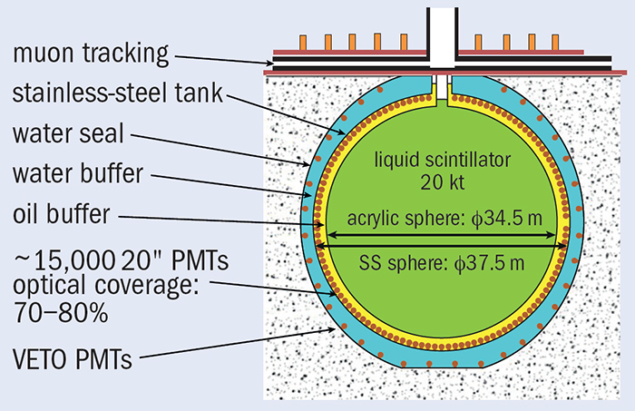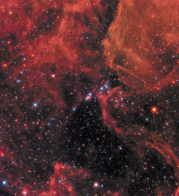
On 10 January, the ground-breaking ceremony for the Jiangmen Underground Neutrino Observatory (JUNO) took place in Jiangmen City, Guangdong Province, China. More than 300 scientists and officials from China and other countries attended and witnessed this historical moment.
JUNO is the second China-based neutrino project, following the Daya Bay Reactor experiment, and is designed to determine the neutrino mass-hierarchy via precision measurements of the reactor-neutrino energy spectrum. The experiment is scheduled to start data-taking in 2020 and is expected to operate for at least 20 years. The neutrino detector, which is the experiment’s core component, will be the world’s largest and highest-precision liquid scintillator detector.
After the determination of the θ13 mixing angle by Daya Bay and other experiments, the next challenge to the international neutrino community is to determine the neutrino-mass hierarchy. Sensitivity analysis shows that the preferred range for the experiment stations is 50–55 km from a nuclear reactor. Jinji Town, the detector site chosen for the JUNO experiment, is 53 km from both Yangjiang and Taishan Nuclear Power Plants, which provide a total thermal power of 35.8 GW. By 2020, the effective power will be the highest in the world.
The JUNO international collaboration, established on 28 July 2014, already consists of more than 300 members from 45 institutions in nine countries and regions, and more than 10 institutions from five countries are planning to join.





